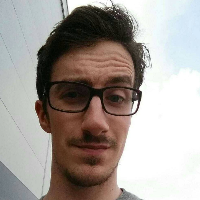Midnight Mass: Gore Or Bore?

Netflix's (sort of) sequel to Mike Flanagan's 'Haunting' series was released late September 2021, reuniting some of the cast from both popular horror series' 'Hill House' and 'Bly Manor'. Only a small handful of those casts are present but feature recurring favourites Henry Thomas (E.T.) and Flanagan's own wife Kate Siegel.
'Midnight Mass' largely differs from its' predecessors in more than just dropping the title 'The Haunting of'. The show is something of a departure from your atypical horror show, grounding itself more on its' dialogue and humanity themes. The horror elements that viewers expect to see are peripheral and take a backseat in favour of the theological ideals of close community living.
The premise is the arrival of a young compelling priest on a remote island community, restoring a revival in church attendance and faith following a series of 'miracles'. Father Paul, played by Hamish Linklater has a profound effect on the populace after seemingly healing a young woman and making her walk again. He argues the point of a merciful God with lead protagonist Riley Flynn (played by Zack Gilford) in his AA meetings.
To summarise with major spoilers, Father Paul is the younger version of the towns' original Monsignor Pruitt, restored to peak physical fitness by a vampire he met while travelling in Israel. He brings the vampire, who he believes to be an angel, back to the town to help the townsfolk. Naturally, calamity ensues on such a notion.
The word 'vampire' is carefully never mentioned, to the point where it seems that the horror element isn't even necessarily the point of the show. Midnight Mass plays out for the most part as a slow-burn soap opera, focusing largely on the religious beliefs which drive character motivations. It explores the themes of addiction and redemption in the characters of Riley and Joe.

There are some morbid, lengthy discussions about the afterlife between Riley and Erin (Kate Siegel), in what must be the dullest, grimmest relationship ever depicted. She delivers a touching monologue on her version of Heaven, and her belief about What Comes Next.
Interestingly, there is another fantastic lengthy monologue concerning Islamophobia, from Sheriff Hassan, played by Rahul Kohli. He tells of his rise in the police force, only to be met with suspicion, fear, and hatred following the events of 9/11.

While all these themes are important to the human condition and deserve exploration, they all have a home in the drama category. A lot of Midnight Mass' attention came from its' predecessor series which were primarily horror in nature. There we were treated to jump scares, plentiful gore, good storytelling, and unique visual background scares for the viewer to find amidst the narrative.
Midnight Mass however makes a potential horror viewer feel lied to and duped, as it was hailed as a spiritual sequel to the 'Haunting' series and even features much of the same cast. Midnight Mass cares more about putting forth the writers' own opinions on the afterlife and the power of faith vs the cold hard facts of science.
The writers of Midnight Mass clearly want you to be asking questions about religion, about death and the afterlife, about racial equality, but they're pushing these questions onto an audience who don't particularly want to ask these questions.
Midnight Mass, while obviously religious from the title, and the writers' long-winded theological debates are only wrapped up in the thin veneer of the horror genre. The main premise/promise becomes a side note in what is clearly a theological exploration.

Ironically, and probably indirectly, I feel that what seems to be the hidden agenda of faith revival, hurts itself by having a hypocritical priest at its' centre. While Father Paul's arguments are oft times compelling, his nefarious actions using scripture justifications are disappointingly cliche in media depictions of Catholicism.
Religious fervour soon turns into zealotry, with characters quoting passages of the Bible relevant to their convictions, while blindly omitting other passages that might directly contradict their actions. One such character is the delightfully loathsome Bev Keane, played by Samantha Sloyan.

While the writing is undoubtedly good, it lacks any kind of suspense. People who yearn for edge-of-the-seat terror, soon sit back on the said seat and fall asleep. There is the occasional injection of horror, but they're so interspersed and far apart that the viewer knows they're saving the good stuff for the crescendo penultimate episode.
Here in the last two episodes, writer Mike Flanagan delivers on the horror theme with a delightful mass poisoning and gruesome bloodbath. While the last two episodes are satisfying for the horror viewer to watch, it takes an awfully long time to get there. Many viewers only watched in obligation because they'd spent so much time watching previous episodes and didn't want their time wasted.

'Midnight Mass' on the whole is a compelling exploration of how deep-seated faith and religion can drive peoples' motivations and beliefs to extreme actions.
Father Pauls' conviction of a redeeming angel, Bev Keane's misguided blind faith in an avenging God, and the clash of zealotry Catholicism with the series' one Muslim character, are all interesting of themselves, but deserving of a drama platform.
Viewers expecting horror from 'Midnight Mass' are in for a sore disappointment.




